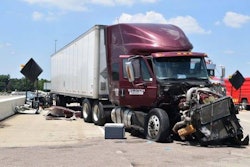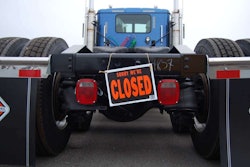This story originally published March 12, 2020. This is the first of a two-part series on the growing trend of large court-ordered settlements in truck crash lawsuits. Part 2 covers who pays for these settlements and how your fleet can protect itself against such verdicts.
Courts in recent years have taken up an alarming trend in crash litigation against trucking companies: Awarding mega settlements, sometimes regardless of fault, to plaintiffs who sue carriers after a crash. Often, this includes courts digging into fleets’ pasts – including driver training and orientation – to find justification for multi-million-dollar payouts.
Juries think “somebody has to pay,” in these cases, said Annette Sandberg, CEO of TransSafe Consulting and former administrator of the Federal Motor Carrier Safety Administration, even if the fleet or driver wasn’t at fault. “I think verdicts will keep going up and up,” she added. “Short of tort reform with some kind of limits, I just don’t know [where they will stop]. It’s unfortunate. It ends up costing all of us.”
Such “nuclear verdicts,” a term made popular by the American Trucking Associations and some media outlets over the past year, have had a ripple effect throughout the trucking industry, forcing some carriers into bankruptcy and causing insurance rates to skyrocket.
“Nuclear verdicts” generally refer to cases in which a jury returns a settlement of $10 million or more. That’s well above the $750,000 in liability insurance required and the $1 million that most trucking companies hold, often leading to lawsuits against insurers and, sometimes, fleets liquidating assets to pay. Verdicts have reached as high as $281 million, in a 2013 case, Aguilar v. Heckmann Water Resources, in which the drive shaft of a Heckmann truck broke off and killed motorist Carlos Aguilar.
Attorneys point to climbing medical costs, new tactics by plaintiff attorneys, changing societal views around money and court precedent as factors in the trend toward runaway verdicts.
“Really good plaintiff lawyers that had done product liability, medical malpractice, class-action and other cases began to move [away] from those areas,” said Charles Carr, president of the Birmingham-based firm Carr Allison. “There was a lot of tort reform in medical malpractice with protections against these runaway verdicts. They moved over to trucking litigation.”










